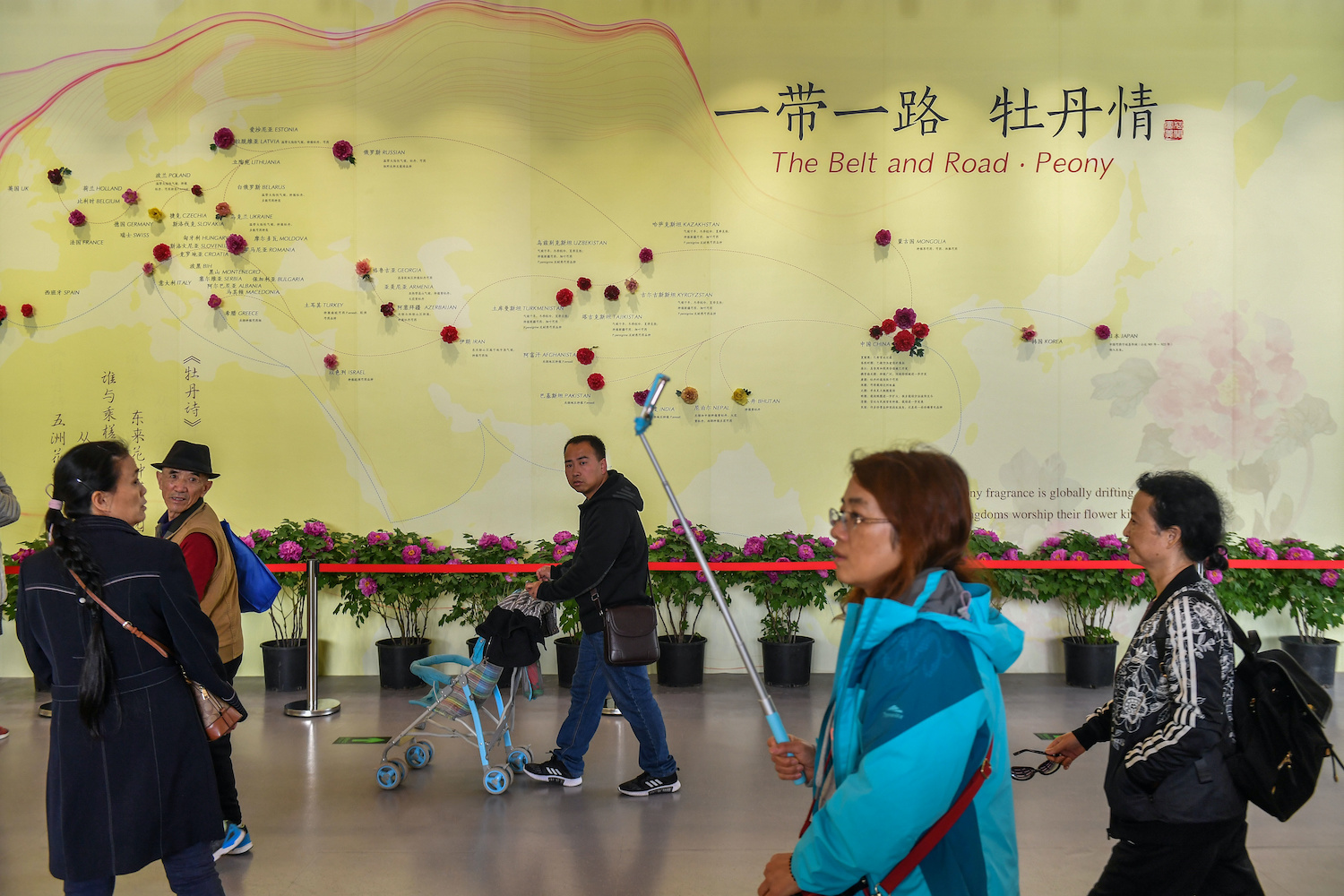China’s huge Belt and Road Initiative (BRI) is in danger of losing momentum with opposition abroad mounting and debts rising, a new study published on Wednesday claimed.
President Xi Jinping launched the BRI in 2013 with the aim of using China’s strengths in financing and infrastructure construction to “build a broad community of shared interests” throughout Asia, Africa and Latin America.
But Xi’s “project of the century” is now facing major challenges and significant backlashes abroad, according to a study by AidData, a research lab at the College of William and Mary in the United States, paving the way for rival schemes to squeeze Beijing out.
Also on AF: Evergrande Creditors Blocked From WeChat Amid Protest Fears
“A growing number of policy-makers in low and middle-income countries are mothballing high-profile BRI projects because of overpricing, corruption and debt sustainability concerns,” Brad Parks, one of the study’s authors, said.
AidData said $11.58 billion in projects in Malaysia have been cancelled in recent years, with nearly $1.5 billion cancelled in Kazakhstan and more than a $1 billion in Bolivia.
He Lingxiao, a spokesperson for the China-led Asian Infrastructure Investment Bank, which is closely linked to the BRI, said: “We believe the overarching principles of BRI are sound.”
The AidData study looked at 13,427 Chinese-backed projects in 165 countries over 18 years, worth $843 billion in total, and noted that Beijing’s annual international development finance commitments are now double those of the United States.
But major changes in public sentiment made it difficult for participating countries to maintain close relations with Beijing, Parks said.
The study said an increasing number of China-backed projects have been suspended or cancelled since BRI’s 2013 launch, with evidence of “buyer’s remorse” in countries as far afield as Kazakhstan, Costa Rica and Cameroon.
LABOUR VIOLATIONS
Credit risks have also increased, with the exposure to Chinese debt now exceeding 10% of GDP in many low and middle-income countries.
The survey found that 35% of Belt and Road projects were struggling with corruption, labour violations, environmental pollution and public protests.
In June this year, the United States announced a rival G7 initiative known as Build Back Better World (B3W) to provide financial support for developing nations to build infrastructure.
“B3W is going to increase choice in the infrastructure financing market, which could lead to some high-profile BRI defections,” Parks said.
AidData’s study received funding from a diverse group of private and public organisations, including the Ford Foundation and the US Agency for International Development (USAID), but said its research is independent and transparent.
- Reuters with additional editing by Sean O’Meara
























